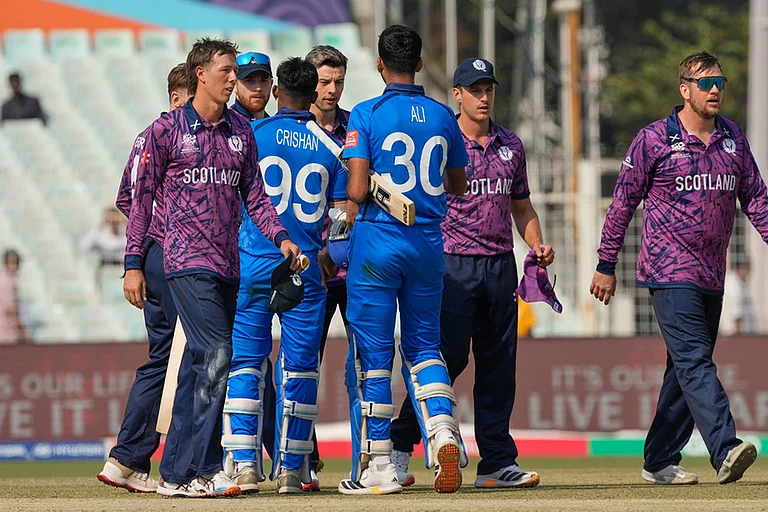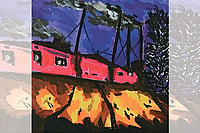The son, born and brought up in a northern English mill-town intriguingly named Dasht-e-Tanhaii, responds: "Dignity? Mother, are you aware that Muslim women cannot marry a non-Muslim? Their testimony in court is worth half that of a man. Non-Muslims living in Muslim countries have inferior status under Islamic law: they may not testify against a Muslim. Non-believers are to be killed...."
These words could also have been spoken, in our country, by the votaries of the VHP. And yet, why is a reader of Aslam’s novel, upon reading those words, unlikely to conjure an image of the speaker as Praveen Togadia or Acharya Dharmendra or even the more sophisticated, but no less petty, propagandists who populate our op-ed pages?
The answer is that Aslam has the courage to write against the shortcomings of his own religion. When has anyone of the VHP had the honesty to condemn what is done in the name of Hinduism?
But it is also a question of treating people as people. Aslam’s characters are touched with an ordinary humanity: the best among them love and betray others around them, but even the worst are not robbed of their longings and sorrows.
Maps for Lost Lovers is the story of immigrant lives in England and has as its focus what it describes at one point as "that organised crime called arranged marriages". Aslam, who was born in Gujranwala but has been living in England for more than two decades, narrates with great fidelity the reality of bad marriages and arbitrary divorces. Young Muslim girls shipped off to Pakistan to marry first cousins; taboos against marrying Hindus and Sikhs; the perversion of the clerics. The novel begins with the story of the disappearance of a couple living in sin. The British police find in the case evidence of an honour killing but others suspiciously regard it as a malicious effort to malign Pakistan.
It is not just that Aslam details with great determination the social violence against women; his gift is that he does so in an idiom perfumed with the beauty of Urdu poetry. In a book like The Enigma of Arrival, V.S. Naipaul had laid an outsider’s claims to the English countryside. Aslam is as attentive to the particularities of that landscape, but his observations always have a subcontinental inflection. (Hugging the narrow lane that is full of moist shadow and that lies between garden and slope, the blue-and-pink trickle of the stream will dry to brilliant-white stones by midsummer. It flows from right to left like Urdu.) I say subcontinental rather than Pakistani because so much of what Aslam has written here is drawn from the mixed histories we inhabit as a divided people. Aslam’s protagonist explains the paisleys on the Kashmiri jacket of a woman he is about to seduce by talking of Shiva finding Parvati with the help of the paisleys imprinted by the goddess’s departing footsteps, and of Shiva commemorating their union by carving the Jhelum river as it flowed and still flows through the valley of Kashmir in the shape of a paisley.
Novels, even the most original, always belong to a larger family of books. Aslam’s book, which has recently made it to the Booker long-list, will remind you of Intizar Husain’s use of mythical folk-tales, Salman Rushdie’sShame, Hanif Kureishi’s Black Album or The Buddha of Suburbia, Meera Syal’s Life is Not All Ha Ha HeeHee, and the fabulous journalism of Gabriel Garcia Marquez, most prominently in The Chronicle of a DeathForetold. One can only hope books written in the future will also recall Maps for Lost Lovers.


























